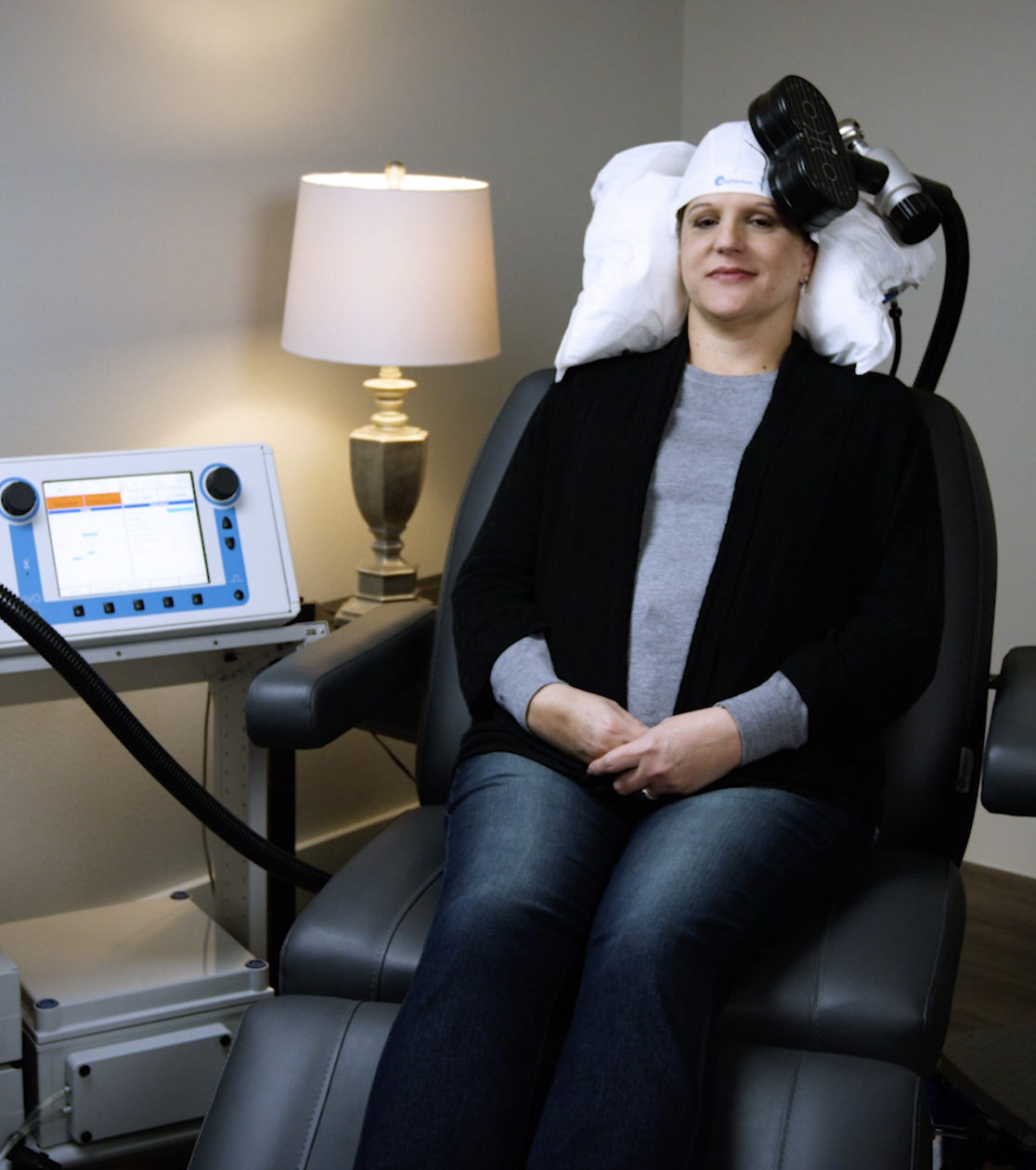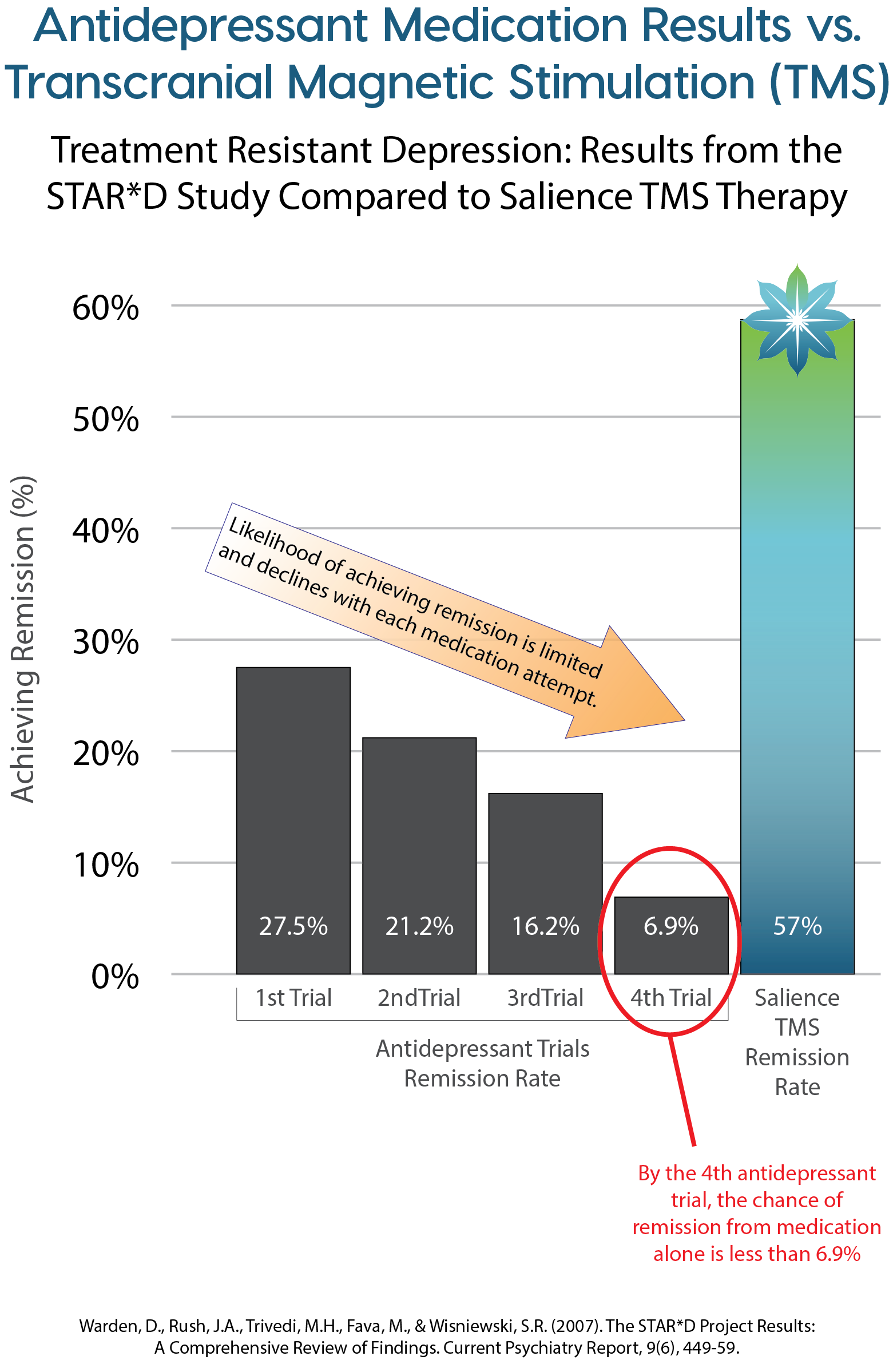Archives
Categories
TMS Therapy
Transcranial Magnetic Stimulation (TMS) is a non-invasive therapy that uses gentle magnetic pulses to enhance communication between brain networks responsible for mood, emotions, and behavior. This innovative treatment helps restore balance and improve mental well-being.

TMS Therapy By The Numbers
1985
TMS therapy has been researched and used since 1985, with over 35 years of medical application.
6.3+ Million
More than 6.3 million TMS treatments have been successfully performed worldwide.
70+ Countries
TMS therapy is actively practiced in over 70 countries across the globe.
5,000+ Studies
Over 5,000 research studies have been conducted on the effectiveness of TMS therapy.
66.8%
Patients reported improved concentration after undergoing TMS therapy.
65.9%
Patients experienced better sleep following TMS treatment.

How Does TMS Work?
Depression can result from a disruption in how different areas of the brain communicate and work together—especially the areas responsible for regulating emotions, thoughts, and reactions.
When these brain circuits fall out of sync, it becomes difficult for the brain to manage mood properly. This can lead to symptoms such as persistent sadness, anxiety, sleep problems, and trouble thinking clearly.
TMS therapy works like physical therapy for the brain. It uses gentle magnetic pulses to stimulate and strengthen specific brain connections through repeated sessions, helping your brain return to a healthier pattern of activity.
By restoring these communication pathways, TMS can reduce symptoms of depression, anxiety, PTSD, OCD, and cognitive difficulties—helping you feel more in control of your mental health and overall well-being.
Facts About TMS Therapy

Patients Experience Significant Improvement with TMS Therapy
Brainworks TMS has helped countless patients find relief from depression. The STAR*D Study on antidepressant treatments found that after trying a fourth medication, the chances of remission dropped to just 6.9%. In contrast, with Brainworks TMS, 55-60% of patients report little to no depression symptoms by the end of their treatment.

FDA-Approved for Depression and OCD
TMS therapy has been a trusted technology for over 30 years and received FDA approval in 2008 for treating major depression. Since then, it has also been cleared for OCD, Anxious Depression, and Smoking Cessation. With millions of sessions completed worldwide and advanced protocols like Dorsal Medial, Theta Burst, and SAINT, TMS therapy offers a proven alternative when medications and therapy aren't enough.

A Safe & Non-Invasive Treatment
One of the biggest advantages of TMS therapy is avoiding the side effects commonly linked to antidepressants, such as weight gain, insomnia, or digestive issues. At Brian Works TMS, some patients may experience mild discomfort or headaches, but these effects are typically temporary and short-lived—making TMS a well-tolerated alternative for depression treatment.

Personalized and Evidence Based Care
At Brainworks TMS, we focus solely on TMS therapy, ensuring expert care tailored to each patient. Our team follows research-driven protocols, offering customized treatment plans and the latest advancements in TMS therapy. With us, you can expect a cutting-edge treatment experience designed for real results.
Benefits of TMS Therapy
- Patients often notice additional benefits, including enhanced focus, better sleep quality, and slight improvements in memory and cognition.
- There are no driving restrictions before or after treatment.
- You can resume your daily activities immediately after each session.
- Typical treatment sessions last about 20 minutes—shorter than most yoga or cardio workouts.
- Combining TMS therapy with other treatments, such as therapy, nutrition plans, exercise, or medication, is highly encouraged for optimal results.

Understanding Insurance Coverage for TMS Therapy
Most major insurance providers cover TMS therapy for conditions such as major depressive disorder and OCD. Our team will work directly with your insurance carrier to manage prior authorizations, confirm coverage details, and clearly explain your payment options—so you can begin treatment with confidence and peace of mind.
Frequently Asked Questions
Yes. Most insurance carriers cover TMS treatment for Major Depressive Disorder and OCD. However, some insurance plans only cover the cost of treatment on a case-by-case basis. Before treatment begins, your personal patient advocate will verify coverage and review your insurance benefits with you, making sure you know the estimated cost before getting started.
A major benefit of TMS treatment is that it doesn't cause the common side effects associated with antidepressants. There are a few potential short term side effects. Some patients report mild discomfort during the procedure, or may have headaches and or fatigue; however, these effects are usually temporary.
Patients are encouraged to stay on their regular prescribed medication throughout the course of treatment. Once treatment is completed, your prescribing physician will determine if your medications can be reduced or changed.
Each TMS session typically lasts around 20 minutes, depending on your personalized treatment plan. As a non-invasive therapy, there’s no downtime. You can resume daily activities immediately after each session.
Most patients receive TMS five times a week for 5 to 8 weeks. Once a response is observed, treatment may continue to achieve full remission.
When treatment is completed as prescribed, there is no evidence that TMS treatment can worsen the symptoms of depression on a permanent basis.






